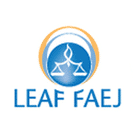In anticipation of the RCMP releasing a new report, the LSC provides this fact sheet for the assistance of MMIW advocates:
Who are we?
The Legal Strategy Coalition on Violence Against Indigenous Women (LSC) is a nation-wide ad hoc coalition of groups and individuals formed in 2014 following the murder of Inuit university student Loretta Saunders, to marshal resources that address violence against Indigenous women. The LSC was established in 2014 as a response to the alarming prevalence of violence and discrimination against Indigenous women and girls in Canada. The coalition is comprised of individuals and civil society organizations with interdisciplinary expertise on issues that impact Indigenous women, including human rights, gender equality, and constitutional law.
The LSC is engaged in legal advocacy and research to urgently address the critical issue of missing and murdered Indigenous women (MMIW). In addition to supporting the call for a public national inquiry on MMIW, the LSC collaborates on research and other activities in order to achieve appropriate government responses to the continuing violence and discrimination experienced by Indigenous women and girls in Canada.
What work have we done?
In February 2015, the LSC released a report to assess over two decades worth of reports with recommendations for stopping violence against Indigenous women and girls. This research was intended to address the Canadian Department of Justice contention that a national inquiry on MMIW is not necessary due to there being a list of existing reports on the subject.
The LSC reviewed fifty reports containing over 700 recommendations. The reports dealt with aspects of violence and discrimination against Indigenous women and girls, including government studies, reports by international human rights bodies, and published research of Indigenous women’s organizations. The LSC researchers found that only a few of the more than 700 recommendations in these reports have ever been fully implemented. . Moreover, the LSC research shows that while there is a general consensus about the root causes violence against Indigenous women, there has been a failure to implement the necessary responses to address the crisis. The research also suggests that a national inquiry should examine the resistance to implementation of known and recommended measures to address the issue.
- An executive summary of the February 2015 report is here.
- The full report analysing the implementation of past recommendations is here.
- A spreadsheet summarizing the previous reports is here.
- A list of the recommendations contained in the previous reports is here.
A preliminary version of this research was released in December 2014, with the intention of providing assistance to MMIW advocates across the country.
The two December 2014 LSC documents are available here:
- A spreadsheet of the reports to date “Violence Against Indigenous Women and Girls: A Consolidated Literature Review.“
- A briefing note setting out the preliminary research findings from the review of the 50 reports.
Why do we need a public inquiry into violence against Indigenous women and girls?
Despite the government’s reluctance to initiate a public national inquiry into MMIW, the LSC maintains that an inquiry is essential to combat violence against Indigenous women and girls. LEAF Legal Director Kim Stanton has noted that “a national inquiry is needed to examine why there has been so much resistance by successive governments to [the] implementation of known and recommended measures to address the issue.” Similarly, Christa Big Canoe, Legal Director of Aboriginal Legal Services of Toronto has said that “a properly established inquiry, backed by a clear commitment by government to act on its findings, would provide the kind of accountability to the public that we so sorely lack.” She also stated, “Families of missing and murdered women need to have a hand in the creation of an inquiry process and most importantly in establishing the mandate of an inquiry to ensure that the voices of the survivors is heard throughout the whole process, from the beginning to the implementation of recommendations or findings.” While the Canadian government has conducted inquiries and released reports that touch upon the issue of MMIW, there has not been a national inquiry focused on the issue exclusively.
The links for these reports and other resources for MMIW advocates are included below.
Members of LSC include:
- Aboriginal Legal Services Toronto
- Amnesty International Canada
- Canadian Association of Elizabeth Fry Societies (CAEFS)
- Canadian Feminist Alliance for International Action (FAFIA)
- Carrier Sekani Family Services
- Law Office of Mary Eberts
- Constance MacIntosh, Director, Dalhousie Health Law Institute, Associate Professor, Schulich School of Law, Dalhousie University
- Nova Scotia Native Women’s Association
- Kim Pate, Sallows Chair in Human Rights, Faculty of Law, University of Saskatchewan
- Union of British Columbia Indian Chiefs
- Women’s Legal Education and Action Fund (LEAF)
- West Coast LEAF
Resources:
December 2014 LSC documents are available here:
- A spreadsheet of the reports to date “Violence Against Indigenous Women and Girls: A Consolidated Literature Review.“
- A briefing note setting out the preliminary research findings from the review of the 50 reports.
February 2015 LSC documents are available here:
- An executive summary of the February 2015 LSC report is here.
- The full report analysing the implementation of past recommendations is here.
- A spreadsheet summarizing the previous reports is here.
- A list of the recommendations contained in the previous reports is here.
Other resources:
- British Columbia Missing Women Inquiry report
- IACHR report
- CEDAW report
- Amnesty International: “A Human Rights Repose to Discrimination and Violence against Indigenous Women in Canada”(2004), ongoing MMIW No More Stolen Sisters campaign.
- British Columbia: “Missing Women Commission of Inquiry” headed by Commissioner by Wally Oppal (2012).
- CEDAW: “Report of the inquiry concerning Canada of the Committee of the Elimination of Discrimination against Women under article 8 of the Optional Protocol to the Convention on the Elimination of All Forms of Discrimination against Women” (2015).
- Human Rights Watch: “Canada: Investigate Missing, Murdered Indigenous Women”(2012).
- IACHR: “Missing and Murdered Indigenous Women in British Columbia, Canada”(2014).
- Native Women’s Association of Canada: “Sexual Exploitation and Trafficking of Aboriginal Women and Girls in Canada”(2014).
- RCMP: “Missing and Murdered Aboriginal Women: an Operational Overview”(2014).
- Statistics Canada: “Violence victimization of Aboriginal women in the Canadian provinces, 2009.”
LEAF Legal Director Kim Stanton has published two posts on the proposed national inquiry:
- rabble.ca: A national inquiry for #MMIW? Yes, but do it right.
- Blogging for Equality: Putting a National Inquiry on the Radar

